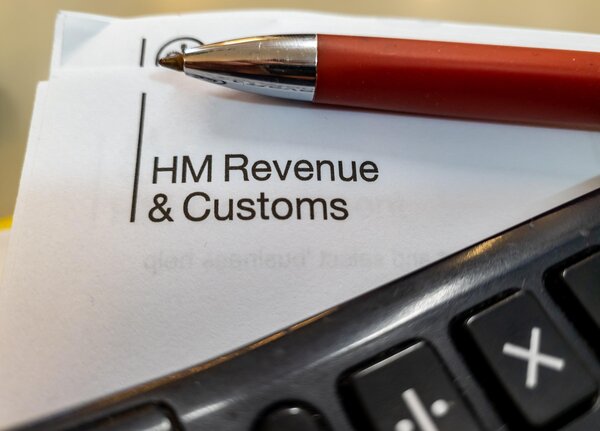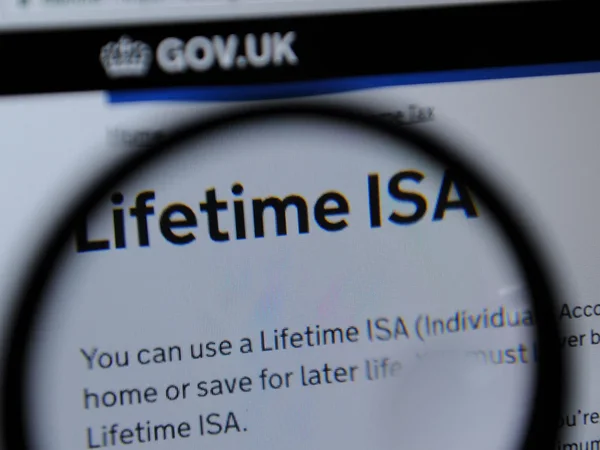Let’s Clear Up Freelance Tax While You Work Abroad...
Working across borders? Not sure how your freelance income is taxed while living overseas?
Understanding UK tax residency, double taxation, and foreign income rules is key to staying compliant and avoiding unexpected bills.
This guide walks you through everything from split-year treatment to digital nomad tax rules, so you can freelance with peace of mind. Let’s dive in.
Understanding UK Tax Implications for Freelancers Abroad
If you’re a freelancer working abroad, understanding the UK tax implications of your overseas work is essential. The UK tax system can be complex, especially when your income comes from multiple countries or you’re working remotely for clients around the world. Whether you’re self-employed or working as a contractor, your tax residence status plays a crucial role in determining where and how much tax you need to pay.
It’s important to be aware that UK tax laws may require you to pay income tax on your worldwide income, even if you’re living and working overseas. Social security contributions can also come into play, depending on your residence status and the countries involved. Navigating these rules is key to staying compliant and avoiding unexpected tax bills or penalties.
As you plan your overseas working arrangement, take time to understand your obligations for income tax, social security, and reporting requirements. Being proactive about your tax residence and staying informed about the relevant tax laws will help you manage your finances confidently while working abroad.

What Determines Your UK Tax Status When Working Abroad?
The Statutory Residence Test (SRT) is HMRC’s framework for figuring out your tax status. It’s not just about counting days - it’s more complex than that. Being 'resident for tax' purposes means you may be liable for UK tax on worldwide income.
UK residents typically pay UK tax on their worldwide income. Non-residents generally pay UK tax only on income from UK sources.
The famous 183-day rule (spend this many days in the UK and you’re automatically resident) is important, but it’s not the whole story. The number of days spent in the UK is a key factor in determining tax residency.
Your connections to the UK matter too. These “ties” include family living in the UK, having available accommodation, and working in the UK. Each property or work location is considered separately when assessing residency ties.
How Freelancing Abroad Affects Your UK Tax Obligations
Your tax residence status determines what income you need to report to HMRC when working abroad as a freelancer. If you have clients around the world, be aware that working with international clients can have tax implications, including potential double taxation and reporting requirements in multiple jurisdictions.
If you remain UK tax resident, you’ll need to declare your worldwide income on your Self Assessment tax return. This applies even if you’re physically working elsewhere.
Non-residents generally only pay UK tax on UK-sourced income, such as rental income from UK properties or fees from UK clients.
Many freelancers fall into a grey area, especially if they split their time between countries. Maintaining strong UK connections while working abroad can complicate matters, and you may remain tax resident in the UK even if you spend significant time overseas.
HMRC might consider you UK resident even if you’re abroad if you don’t make a clean break from the UK. Regular visits back can also affect your status. When you work overseas, it’s important to understand your tax obligations in both the UK and the country where you are working.

Employment Income and Tax Obligations While Freelancing Abroad
When you’re freelancing abroad, your employment income can trigger tax obligations in both the UK and the country where you’re working. If you’re considered a UK tax resident, you’ll generally need to pay UK income tax on your worldwide income, regardless of where your clients are based or where the work is performed. This means you must include all your overseas earnings on your UK self assessment tax return.
However, working overseas often means you’ll also be subject to local tax laws and may need to pay social security contributions in your host country. To avoid being taxed twice on the same income, the UK offers foreign tax credit relief, allowing you to offset taxes paid abroad against your UK tax bill. Double taxation agreements between the UK and many other countries further help ensure you don’t pay tax twice, but the details can vary depending on your specific situation.
Your tax residence status is determined by factors such as the number of days you spend in the UK and your personal connections. If you remain a UK tax resident, you must report your worldwide income and may need to register with tax authorities in the country where you’re working. It’s also important to check if you need a work permit or visa for your overseas work.
By understanding your employment income tax obligations, keeping track of your residence status, and making use of available tax reliefs, you can stay compliant with both UK and overseas tax authorities. Taking these steps will help you minimize your tax liability and avoid any surprises when it comes time to pay taxes.
Splitting the Tax Year: When You Leave or Return to the UK
Tax years can be “split” into resident and non-resident periods. This can save you tax when you move abroad or return to the UK.
You must meet specific conditions to qualify for split-year treatment. Leaving the UK to work full-time abroad is one common scenario. Your status for a complete UK tax year determines whether you are taxed as a UK resident or non-resident for that year, which can significantly impact your tax liability.
Without split-year treatment, you might face UK taxation on your worldwide income for the entire tax year. This applies even if you were only resident for part of it.
Keep solid evidence of your departure or arrival date. Flight tickets, rental agreements abroad, and foreign work contracts all help prove your case.
Double Taxation Agreements: Avoiding Paying Twice
The UK has agreements with over 130 countries, known as double taxation agreements, to prevent you from paying tax twice on the same income. A double taxation agreement is a treaty between two countries that determines how tax liabilities are shared, provides relief from double taxation, and helps resolve residency conflicts.
These agreements (DTAs) determine which country has the primary right to tax different types of income. Tax residence and obligations may arise in two countries, but double taxation agreements help resolve these conflicts by specifying where you are considered resident for tax purposes and which country has taxing rights. Each agreement is different, so check the specific DTA for your country.
If you earn income in an overseas country, it may be taxed both there and in the UK, depending on the agreement between the two countries. Tax credits can offset taxes paid abroad against your UK tax liability. You need to claim them properly on your tax return.

Self-Assessment Requirements for Overseas Freelancers
You must continue filing UK Self Assessment if you remain UK tax resident. The same deadlines apply regardless of where you live.
Foreign income must be reported even if tax was paid locally. Even if you have already paid tax on your foreign income abroad, you are still required to report it to HMRC. You can claim foreign tax credit relief to avoid double taxation.
Non-residents may still need to file if they have UK-source income. This includes income from UK clients or rental property. All taxable income, including foreign earnings, must be included in your self-assessment.
When reporting foreign income, you’ll need to convert it to sterling. Use HMRC’s approved exchange rates for this conversion. Receiving income into a UK bank account can also affect your reporting and tax obligations.
National Insurance Considerations for Freelancers Abroad
National Insurance can be trickier than income tax when working abroad. You might still need to pay UK NICs even when living elsewhere.
After working abroad for 52 weeks, you may apply for an exemption from UK National Insurance. This isn’t automatic – you must request it.
The UK has social security agreements with many countries. A social security agreement can clarify which country you pay contributions to and prevent double payments, ensuring you are not liable for social security contributions in both countries.
Getting an A1/E101 certificate before you leave proves you’re paying UK NICs. This prevents double payments in many European countries.
Remember that your NI contributions affect your UK state pension entitlement. Consider this carefully in your planning.
Digital Nomad Tax Complications
Hopping between countries creates additional tax complexity. If you are someone who works remotely, you may face tax obligations in multiple countries at the same time. You might establish tax residence in multiple places simultaneously.
Some countries now offer special digital nomad visas with tax benefits. These don’t automatically exempt you from UK tax obligations. When you work remotely abroad for a UK or foreign company, you need to be aware of the specific tax implications in each country.
You need to properly allocate your income to each jurisdiction where you’ve worked. Most countries have similar rules for determining tax residency, often based on time spent and income earned, but it’s important to check the individual regulations. This requires careful record-keeping of your location and activities.

Final Thoughts
Tax implications of freelancing abroad aren’t straightforward. They depend largely on your specific circumstances and travel patterns.
Professional advice from an accountant familiar with international taxation is invaluable. It often pays for itself through tax savings and compliance. Freelancers should also consult a tax professional to ensure they comply with complex international tax laws and avoid unexpected liabilities.
Keep meticulous records of your travel dates, work activities, and income sources. These will support your tax position if questioned. Keeping accurate records is essential for proving your status for tax purposes.
Tax planning before you leave the UK can significantly reduce complications. A little preparation can potentially save you substantial money. Your permanent home, or domicile, can also affect your long-term tax obligations, so it's important to understand how this impacts your situation.
Pie.tax: Simplifying Freelancer Tax Across Borders
Freelancing internationally shouldn’t come with unnecessary tax headaches. As the UK’s first personal tax app, Pie tax offers clear guidance on navigating these complex areas.
Our tax experts can assist you with questions about freelance work and how to properly account for it in your Self Assessment.
Feel free to explore the Pie.tax app if you’d like to see how it works.











